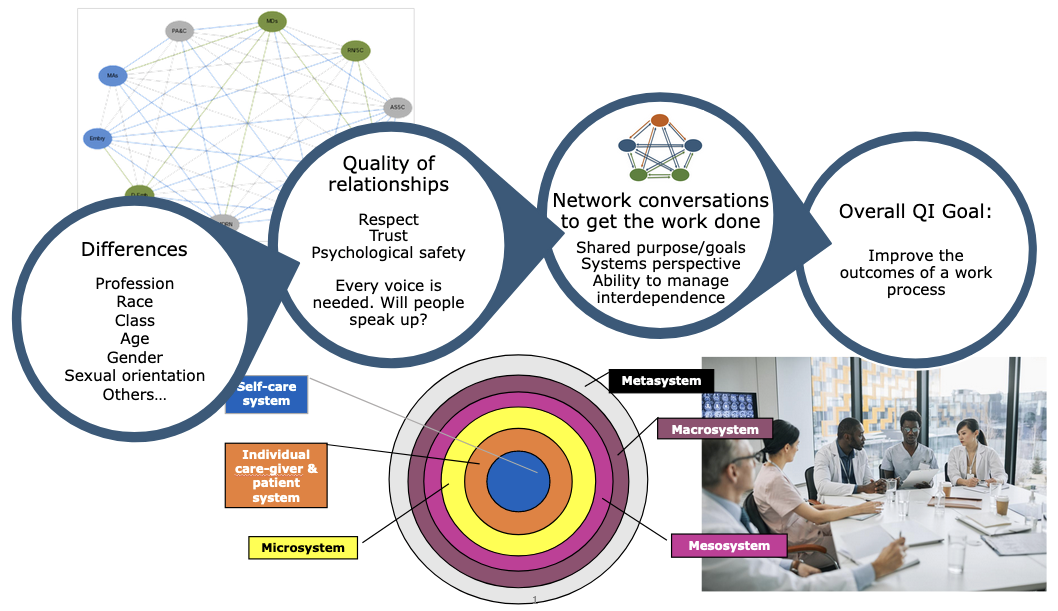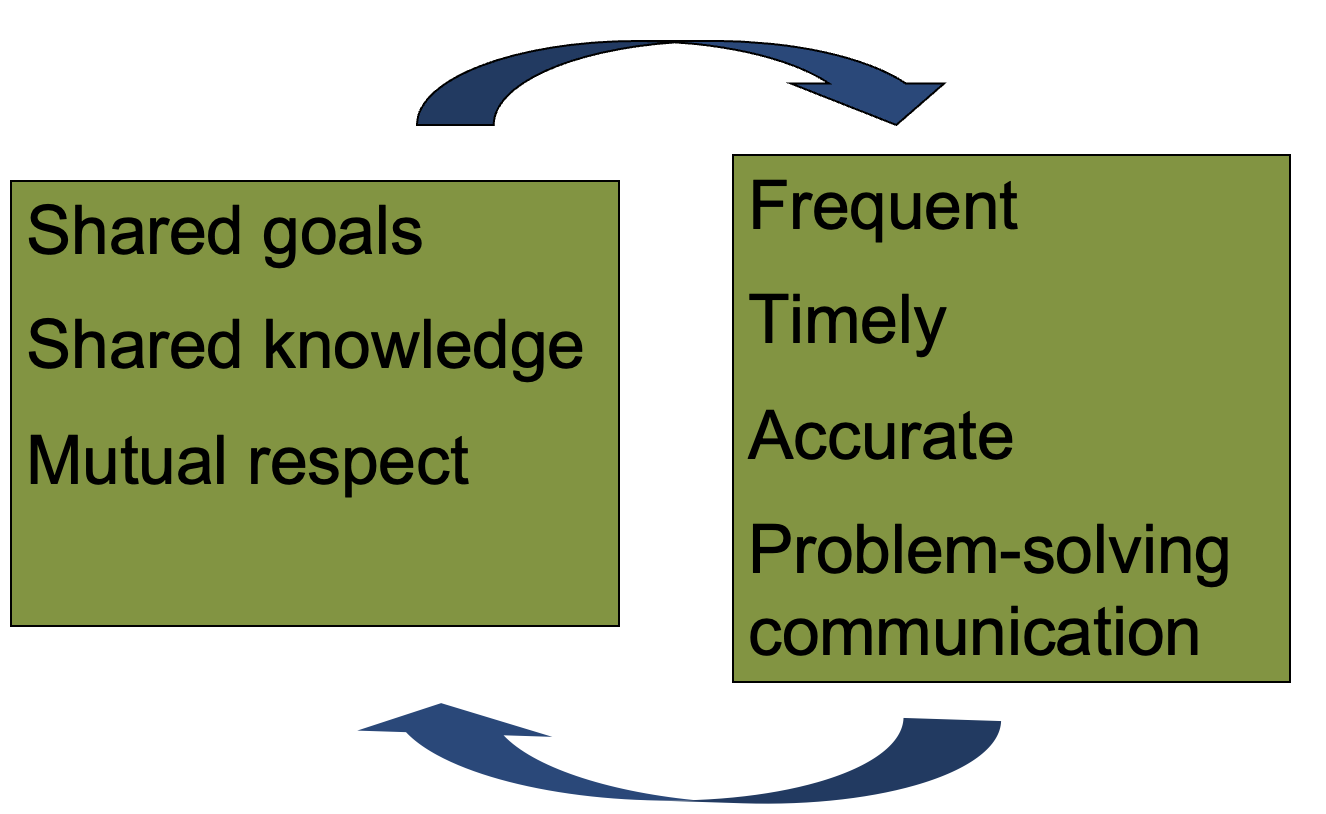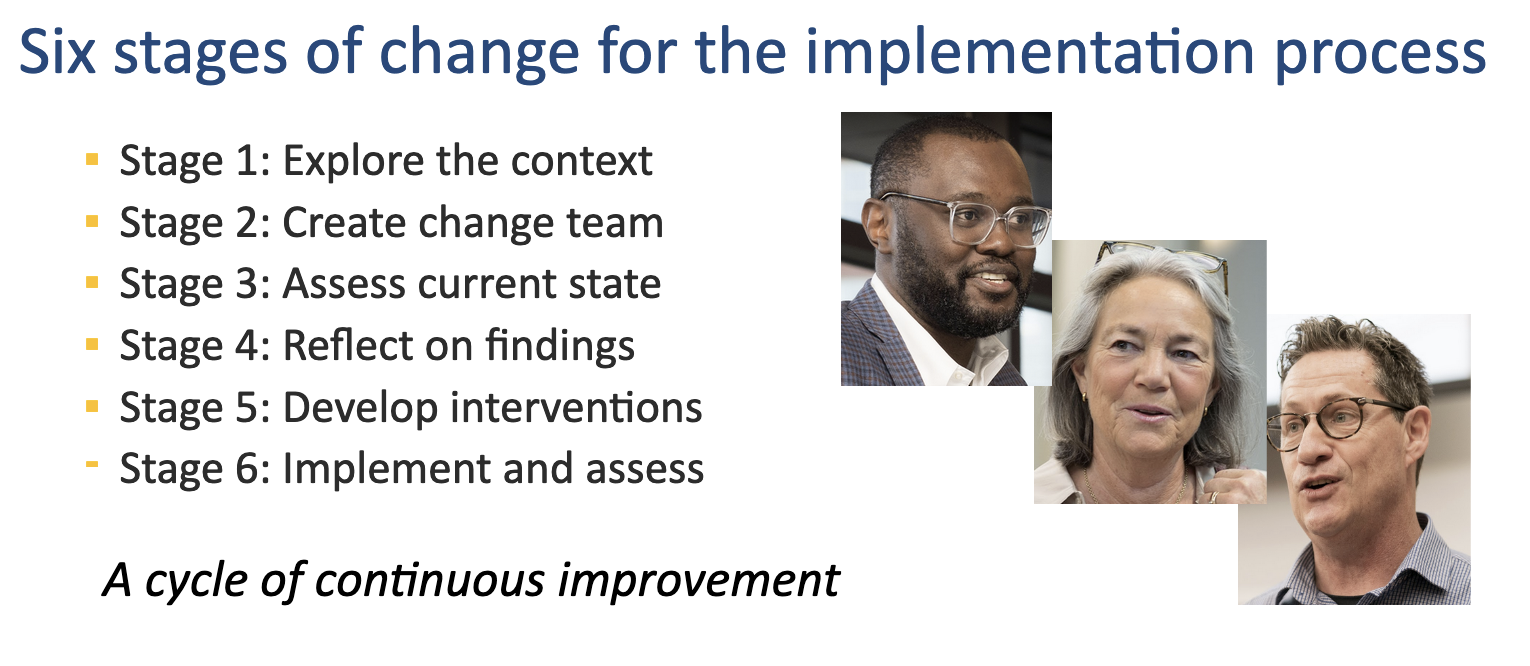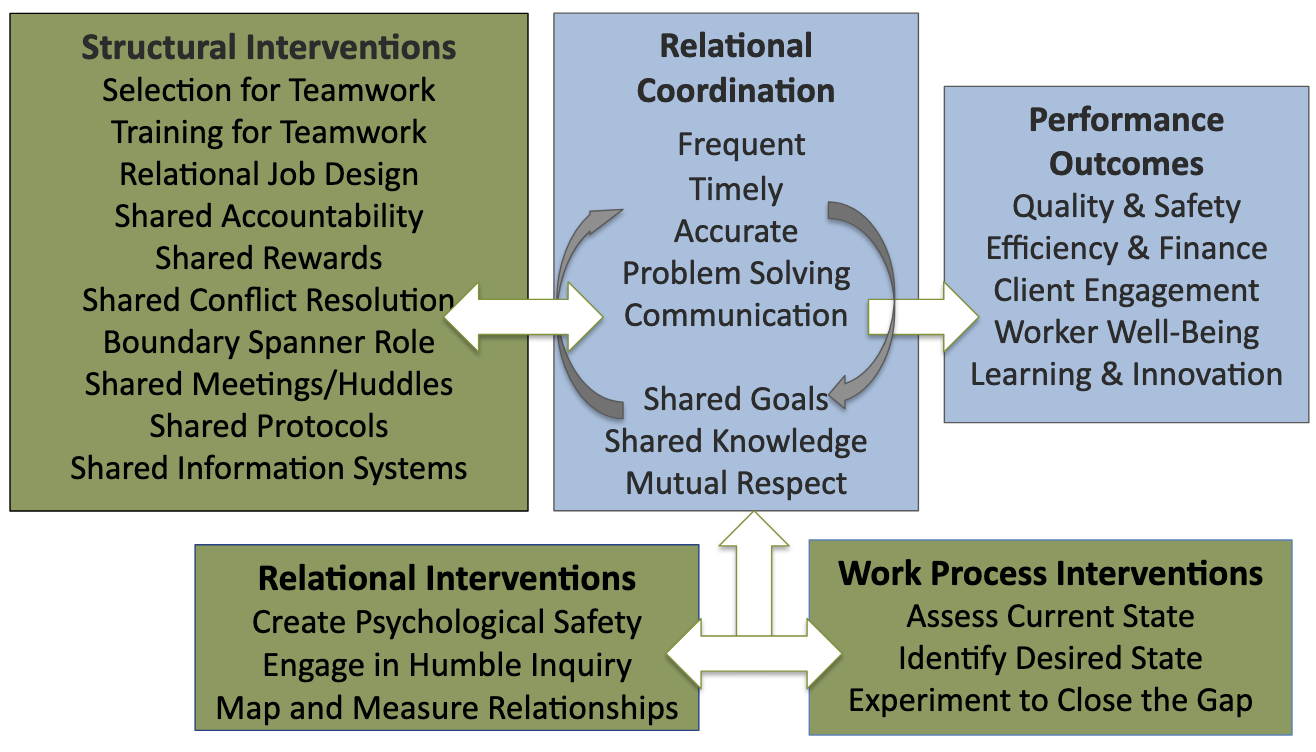
The Power of Difference
Differences associated with professional and social identities bring a broad array of perspectives, life experiences, values, know-how, approaches to problem solving and more. These differences are an enormous resource for innovation and adaptation. The unique view of any one person may stimulate a whole new solution. If not managed well, however, these same differences become sources of conflict, tension and power struggles about whose views are ‘right’ and whose perspectives will prevail.
Which way things go depends upon the group members’ communication skills; do they make it safe enough for people to share their unique views and are they able to listen with enough open-mindedness to consider new ideas? This RC/RAD Toolbox offers frameworks, communication tools and assessment tools to help teams leverage the power of difference.

Relational Coordination Is ....
Relational coordination is a mutually reinforcing process of communicating and relating for the purpose of task integration. Relational coordination is shaped by organizational structures and, when strong, it supports organizations in achieving a wide range of desired performance outcomes including quality, safety, efficiency, financial outcomes, well-being, learning and innovation. Relational coordination is particularly important for achieving these outcomes when work is highly interdependent, uncertain and time constrained, whether in times of crisis or everyday stress.
Relational coordination is measured as a network of ties across roles in any work process that requires coordination. Its outcomes and predictors have been tested in 73 industry sectors and 36 countries around the world. See Revisiting Relational Coordination: A Systematic Review.

Relating Across Difference Is ...
Relating Across Difference is an opportunity for coaches to learn an integrated, relational approach to QI and DEI. Coaches learn to build relationships of shared goals, shared knowledge and mutual respect across professional and social identity differences on their teams as they lead improvement projects. Improvement projects are carried out over 9 months, with 4 workshops and ongoing coaching offered by instructors to support the learning.
Instructors include Wale Olaleye, PhD, MA, MBA, BPharm, Anthony Suchman, MD, MA, and Jody Hoffer Gittell, PhD. The curriculum is currently being developed and tested in partnership with three health systems including Cleveland Clinic/Case Western Reserve University, Mass General Brigham, and the University of Washington Medical Center, with funding from the Josiah Macy Foundation.
Relating Across Difference project leaders, Sites, and Curriculum

FIND COMMUNICATION SKILLS AND TOOLS
FIND VISUALIZATION AND ASSESSMENT TOOLS
FRAMEWORKS |
|
Relational Coordination |
|
Relating Across Difference |
|
Relational Approach to Diversity, Equity, Inclusion |
|
Relational Approach to Process Improvement |
|
Psychological Safety |
|
Relational Model of Change & the Six Stages of Change |
|
The Relational Model of Change
|
|
COMMUNICATION SKILLS AND TOOLS |
|
Cone in a Box |
|
Humble Inquiry |
Video - humble inquiry: the gentle art of asking instead of telling |
Relational Repair |
|
Building Psychological Safety with PEARLS |
|
Building Shared Goals |
|
Building Mutual Respect |
|
Building Shared Knowledge with Conversations of Interdependence |
|
Building Shared Knowledge with Conversations of Identity |
|
VISUALIZATION AND ASSESSMENT TOOLS |
|
Identity Pie Chart |
|
Relational Mapping |
|
RAD/RC SurveyTM |
|
RAD/RC SurveyTM Report |
|
Organizational Structures Assessment Tool (OSAT) |
What is it?
|

